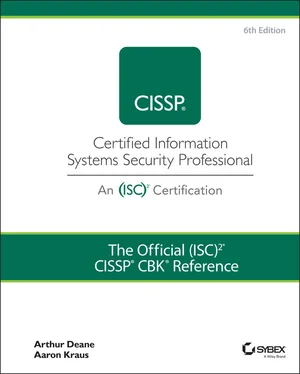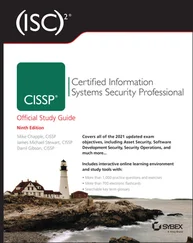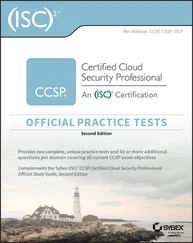A copyright is a legal protection granted to the authors of “original works of authorship” that may include books, movies, songs, poetry, artistic creations, and computer software, among other categories. Copyrights created by an individual are protected for the life of the author plus 70 years. Copyright law in the United States was last generally revised by the Copyright Act of 1976 and codified in 17 U.S.C. The U.S. Copyright Office handles registration, recording, and transferring of copyrights, although an original work does not need to be registered to receive copyright protections.
A trade secret is a proprietary formula, process, practice, or combination of information that a company has exclusive rights to. Using an earlier example, the recipe that Coca-Cola has maintained since 1886 is a trade secret because it is proprietary and has economic value to the company only because of its secrecy. In the United States, trade secret laws are generally left up to the states, although most states have adopted the Uniform Trade Secrets Act (UTSA), which was last amended in 1985. In addition, the Economic Espionage Act of 1996 (discussed earlier in this chapter) and the Defend Trade Secrets Act (DTSA) of 2016 both establish the theft or misappropriation of trade secrets as a federal crime.
Many countries closely regulate the movement of technology through their borders. This might be done to protect local industries from external competition, limit the exportation of sensitive technologies (like encryption), or meet other policy goals of a particular nation. As a CISSP, you should be aware of the implications of any import/export controls in which your organization operates or to which your company's employees may travel.
NOTEThe United States, European Union, and other jurisdictions sometimes issue sanctions (government edicts that prohibit doing business with a given person, group, organization, or country) against particular countries or particular entities. These sanctions come and go much more frequently than import/export laws and can pose challenges for security teams that operate in or do business with sanctioned entities. As a CISSP, you should be aware of sanctions that impact your organization and help ensure your organization's IT systems meet relevant legal requirements.
One of the most well-known regulations that establishes import/export controls is the U.S. International Traffic in Arms Regulations (ITAR). ITAR regulates the export of defense articles and defense services to keep those sensitive materials out of the hands of foreign nationals. ITAR applies to both government agencies and contractors or subcontractors who handle regulated materials outlined in the United States Munitions List (USML). Regulated products and technical data include satellites, aircraft, spacecraft, missiles, and much more. Merely sending an email containing ITAR-controlled data (like a blueprint or 3D design file) is considered an export under ITAR. As such, it's important that your organization maintains proper security controls to restrict the flow of ITAR data to legitimate people and locations.
The European Union also places restrictions on dual-use technology. ECPA No. 428/2009 of May 5, 2009, requires member states to participate in the control of exports, transfer, brokering, and transit of dual-use items. In 2017, these regulations were updated to reflect controls over cyber weapons.
A number of countries have adopted laws or regulations that require security reviews to be conducted or, in some cases, denied companies the authority to import products to their countries altogether. In 2016, China passed a broad cybersecurity law that requires information technology vendors to submit their products to the Ministry of State Security for technical analysis. The law allows the ministry to demand source code for inspection as part of the review process. Similar expectations have been placed on software products by Russia and other nations. In 2017, the U.S. government, citing security concerns, singled out Kaspersky Labs, legislating that the company's products would not be allowed on any U.S. government computer system.
The concept of transborder data flow is closely related to the previously discussed topic of import/export controls. More specifically, this concept focuses on requirements around restricting certain data to or from specific geographic locations or jurisdictions. The ITAR discussed in the previous section is a great example of a legislation that restricts the flow of data. Under ITAR, data must remain within the United States; otherwise, it is considered an export (which may or may not be permitted). Further, ITAR specifically prohibits regulated data from being sent to Iran, Syria, North Korea, and other specified countries. ITAR requirements are particularly noteworthy for public cloud infrastructures that have a global footprint. Many cloud providers have developed the concept of “GovCloud” or similar regionalized cloud offerings to support ITAR and other import/export requirements that restrict transborder data flow.
Many jurisdictions require that certain types of data must be processed inside their borders. This trend has been increasing in recent years, on the assumption that the information, by default, will be more secure, will be available to governments on legal request, and will have the economic benefit of inducing operators of data processing centers to locate facilities within their countries. More than 34 countries have some sort of data localization requirement.
Data localization law took on greater importance following the Snowden disclosures of the range of collection activities performed by the National Security Agency (NSA). Data localization laws were seen as providing some protection against the intelligence activities of foreign powers.
The economic argument for data localization is not necessarily convincing. A substantial body of research suggests that the costs of barriers to data flows in terms of lost trade and investment opportunities, higher IT costs, reduced competitiveness, and lower economic productivity and GDP growth are significant. The estimates suggest that localization reduces the GDP by 0.7 to 1.7 percent in Brazil, China, the European Union, India, Indonesia, Korea, and Vietnam.
Nevertheless, many countries (in addition to the United States, as already mentioned) have adopted such laws.
Russia
In 2015, Russia became one of the first regimes to require all data collected inside Russia on Russian citizens to be stored inside Russia. The regulations implementing the law may not require localization if the information service is not directed at Russia (i.e., use of Russian language, use of Russian top-level domains, etc.); this has still had significant impact on information providers. Some providers, including Google, Apple, and Twitter, have acquired computing capabilities in Russia to comply with the law. Others, most notably LinkedIn, have resisted the law, and their services have been blocked or curtailed inside Russia.
China
In China, the enforcement of the Cybersecurity Law will place new restrictions on the movement of information. China has asserted sovereignty over the internet operating within its borders and has installed network protections, including limiting access points and strict firewall rules to censor data made available inside China. Article 37 of the Cybersecurity Law requires network operators in critical sectors to store all data that is gathered or produced by the network operator in the country on systems in the country. In particular, the law requires data on Chinese citizens gathered within China to be kept inside China and not transferred abroad without the permission of the Chinese government.
Читать дальше












